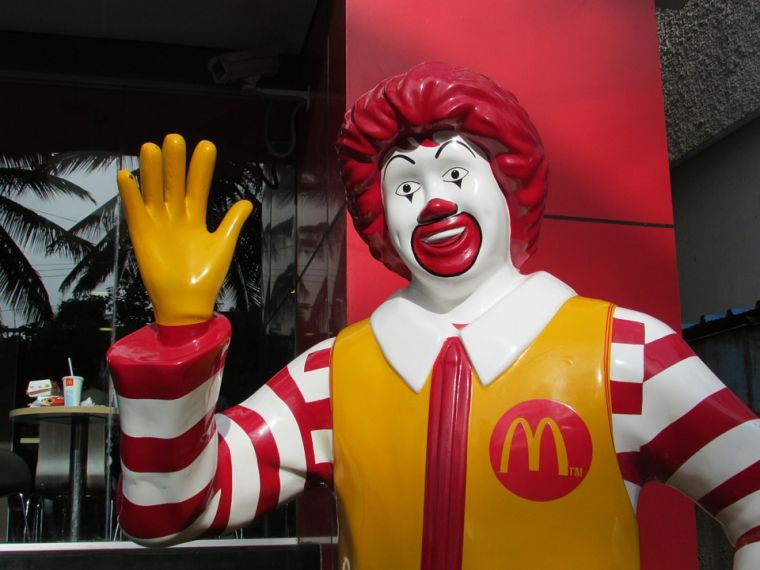
(Pixabay) Ronald McDonald,
Parents can now take their children to any McDonald’s restaurant in the United States without fear of them accessing porn websites in its free WiFi service.
This came about after McDonald’s put in place Internet filters to its public WiFi, blocking pornographic websites at its corporate-owned stores, according to LifeSiteNews.
The company then offered the filtered Wi-Fi to its franchisees, and the majority of its stores now use it, according to a company spokesman.
McDonald’s made the move following the campaign launched by anti-porn group Enough is Enough (EIE) and the National Center on Sexual Exploitation, the Catholic News Agency reports.
“McDonald’s is committed to providing a safe environment for our customers, and we are pleased to share that Wi-Fi filtering has been activated in the majority of McDonald’s nearly 14,000 restaurants nationwide,” a spokesperson for the giant fast food restaurant said in a statement.
Starbucks is set to follow McDonald’s lead, saying on Friday that it plans to implement Wi-Fi filtering in its stores worldwide once they are sure that the filtering doesn’t unintentionally block additional content.
McDonald’s and Starbucks have also implemented pornography filtering in their restaurants in various locations in the U.K.
Smaller chains like Panera and Chik Fil A also provide pornography filtering in the U.S.
Donna Rice Hughes, president of EIE, lauded both McDonald’s and Starbucks for doing their share in fighting pornography, which is now considered a public health crisis and a threat to children’s safety.
“Internet safety is now the fourth top-ranked health issue for U.S. children with peer- reviewed research confirming Internet pornography as a public health crisis. Pervasive online child pornography, which is the actual sexual abuse of children, is a crime to produce, distribute or download,” Hughes said.
“Parents can have peace of mind that, when they or their children go to McDonald’s, they will have a safer and more friendly Wi-Fi experience, filtered from pornography” and “from potential sexual exploitation and predation,” she said.
Hughes called the move an “act of corporate responsibility and commitment to children and family safety.”
Other private establishments have joined various sectors of society in underscoring the harmful effects of pornography. Last year, Hyatt Hotels cut off access to on-demand video pornography in all of their hotel rooms worldwide.
In March, the Utah legislature declared pornography a public health hazard. And in April, Australian bishops said exposing children to pornography amounted to abuse.





